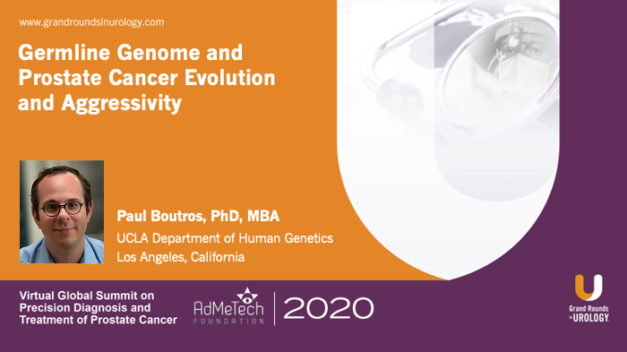Germline Genetics and Prostate Cancer Evolution and Aggressivity
Paul C. Boutros, PhD, MBA, Professor of Human Genetics and Urology at the University of California, Los Angeles, explains the relationship between the germline and cancer evolution, as well as the implications this relationship has for screening and care. Dr. Boutros begins by explaining why it makes sense to study the germline, noting that while cancer is a disease of somatic mutations, there are already many known germline risk factors and evidence suggests that 20% of prostate cancer biopsies could be avoided if patients received a polygenic risk score. Dr. Boutros then looks at the results of a study from his lab at UCLA which show that the germline drives somatic epigenomics and that some single nucleotide polymorphisms (SNPs) are prognostic. Another yet-to-be-published study by the same team suggests that the germline also drives somatic mutations, with multiple quantitative trait loci (QTLs) predicting somatic driver mutations. This means that mutations that occur early in tumor evolution and can increase the likelihood of aggressive cancer are more likely to occur in certain people based on genomic factors. This also appears to be the case with multiple cancer types. Dr. Boutros concludes by noting possible future directions for research in this area, including multi-ancestric studies and studies into germline influences on the transcriptome and proteome. He also observes that it is not yet clear how this research should be integrated with diagnostic and prognostic tests nor how it could influence decision-making.
Read More

